'I was wild and messed up - I don't want others to make same mistakes'
Nile Ranger: I had no discipline - I was living life in fast lane
- Published
"I had a decent career. I was on decent money and then I messed it all up," says former Newcastle United striker Nile Ranger.
Ranger was a 17-year-old "wonderkid" when Kevin Keegan named him on the bench for a match against Arsenal in 2008.
By the age of 19 he was tipped for the very top when Chris Hughton awarded him a new five-and-a-half-year contract, external worth £10,000 a week.
Just over two years later, though, London-born Ranger was gone, his Newcastle contract cancelled by mutual consent after a stream of off-field controversies.
Instead he is now playing in the seventh tier of English football for part-time Kettering Town, scoring the extra-time winner against League One Northampton on Saturday's FA Cup first-round tie.
Ranger's troubled life off the pitch has provided more newspaper headlines than his abilities on it.
He has served two jail terms, one for armed robbery. In 2017 he played for Southend United with an electronic tag on his left ankle after being released from prison having served 10 weeks for online banking fraud.
Ranger has battled a gambling addiction and had his contract ripped up by numerous clubs because of disciplinary issues, while he has also been charged with assault, criminal damage and being drunk and disorderly.
"Team-mates, friends and managers would say: 'Nile, your chances are going to run out'," Ranger told BBC Sport in September. "I wouldn't listen. I was wild, wild, wild."
Now aged 33, Ranger believes he would still be playing in the Premier League had he not led such a troubled life off the pitch.
"I know I have baggage," adds Ranger. "If I had behaved I would have stayed at the top, but I was too unruly."
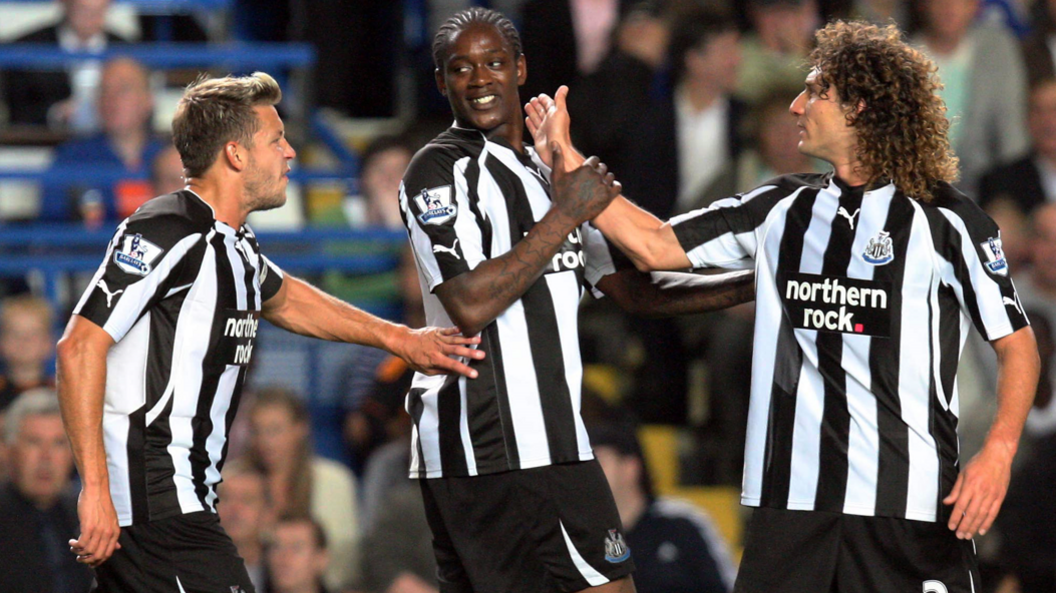
Nile Ranger (centre), aged 19, celebrates scoring for Newcastle in their 4-3 League Cup win at Chelsea in 2010
'We just wanted some quick money'
Ranger's promising career was almost over before it had even started.
He signed for Crystal Palace at the age of 10 but was released two years later for bad behaviour at school.
Aged 15, he was sentenced to 11 weeks in a young offenders' institute for his part in an armed robbery in north London.
"We weren't going around shooting or stabbing people," he says. "We wanted to get some quick money so we said: 'Let's just take phones off people.'
"One of our entourage had a knife but I don't know why because he wasn't using it. We were acting like idiots."
There is regret for the hurt he caused.
"Armed robbery is terrible. I wasn't wanting to hurt them," adds Ranger. "I was just thinking about getting the goods and running off.
"Now I'm older, I do think I must have caused people trauma. At times I was a lunatic. I don't know what else to call it."
Ranger was a highly promising £110-a-week player at Southampton's academy when he was sentenced but the club supported him following his release and moved him into a flat with his mum, Karen, so she could keep an eye on him.
"My mum has had to come to meetings at every club I have been at to discuss my behaviour," he says. "It's been like that since my schooldays."
Ranger was eventually kicked out of Southampton when he stole boots, training kit and even a staff member’s box of chocolates.
Where was his dad when all this was happening?
"He was around but I lived with my mum," says Ranger. "Dad was in my life but what is he going to do? Punch me in the face? He could only speak to me.
"I'm my own man and he used to try to talk sense into me but I just didn’t listen."
Ranger joined Swindon Town on trial before Newcastle came calling with a two-year contract and a £20,000 signing-on fee.
The 17-year-old headed to the north east hoping to put his troubled past behind him and make a name for himself playing alongside the likes of Fabricio Coloccini, Andy Carroll and Alan Smith.
"I went from nothing to something," he says.
'I'd been locked up - now I was getting changed next to Michael Owen'
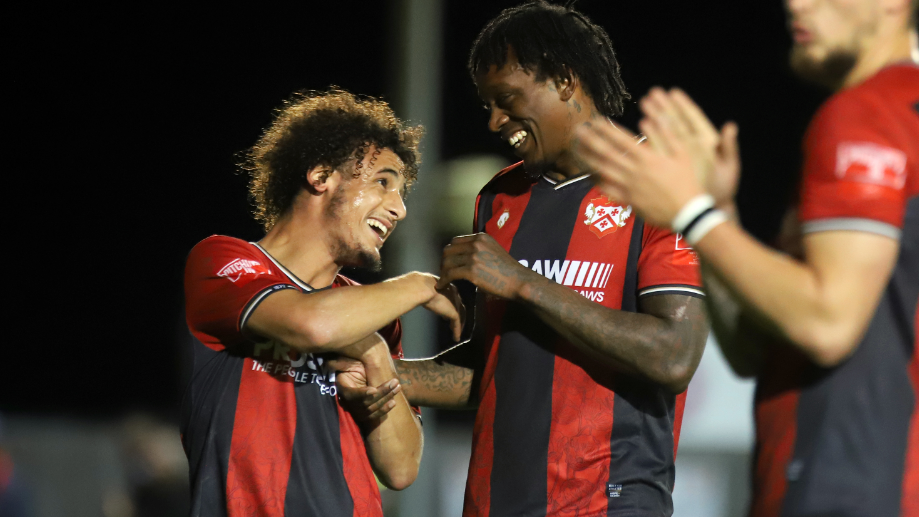
Nile Ranger (right) celebrates scoring for his latest club Kettering Town, who he joined in September
It did not take long for Ranger to get on the wrong side of then Newcastle manager Keegan.
Having been named in the squad for the Premier League match against Arsenal at Emirates Stadium on 30 August 2008, Keegan pulled Ranger aside after he overslept.
"He said: 'Listen, if you're late again I'll make you pull out your gold tooth and sell it'," Ranger recalls.
"He still named me on the bench. It was a different world.
"I’d not been long out of the young offenders' institute - now I was getting changed next to Michael Owen."
Ranger made 26 Premier League appearances for Newcastle but it was his off-field activities which earned him notoriety.
He angered Newcastle fans by criticising them for booing following a home defeat and spelled his name out in £20 notes and posted the photo online.
Ranger was fined by the Football Association for posting homophobic remarks on social media and there was further controversy when he was photographed posing with a replica handgun.
He was also given a six-month conditional discharge after admitting being drunk and disorderly in Newcastle city centre.
All this while he battled a gambling addiction which cost him £32,000 in the space of two months.
"I wasn't used to money. I was trying to fit in [with other players] but fitting in got me addicted. I ended up in Tony Adams' place, external [Sporting Chance]."
Looking back, Ranger says: "People would cut their leg off for the opportunity I had.
"I would bring all my friends up to Newcastle [from London] for parties. I had more money than sense. There was no discipline from me. I was living life in the fast lane."
Hughton, who was named permanent Newcastle manager in 2009, called Ranger's mum into the club for a further meeting as her son's off-pitch problems spiralled.
"Chris Hughton would say to me 'you need to focus, you need to tell all your friends to go back to London' because we used to cause havoc in Newcastle.
"He used to sit me down and say: 'You need to take this chance.' I respected him. He looked out for me. My mum actually saw him in Nando's the other day.
"She sent me a selfie of them together smiling. I told her to tell him to say hello."
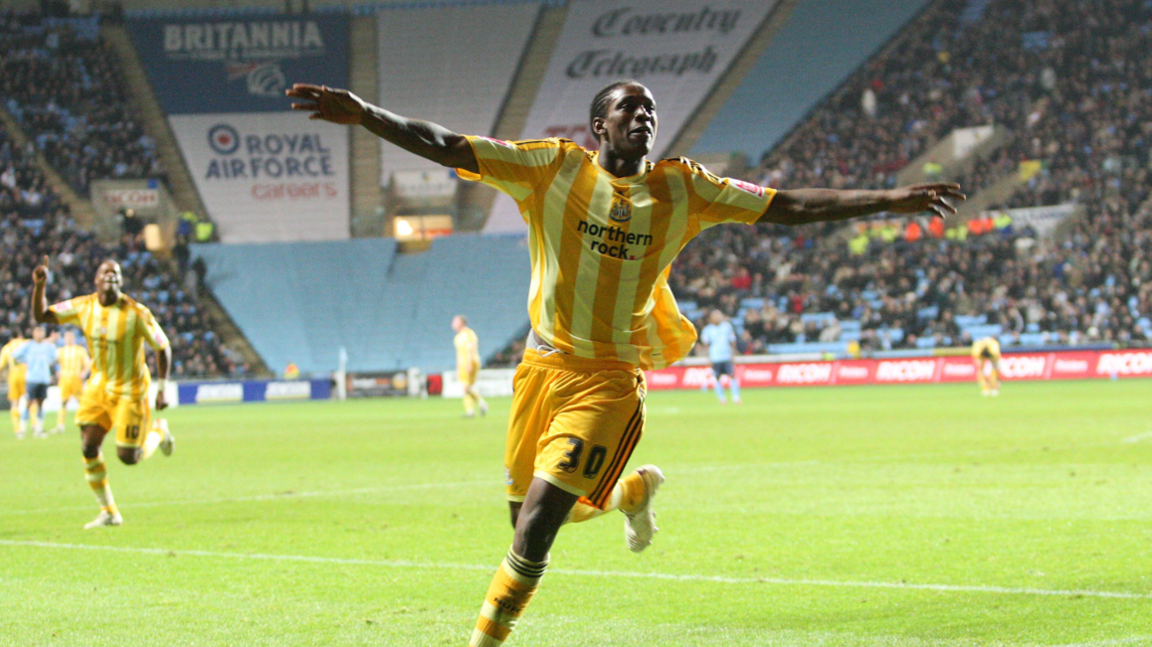
Ranger was 18 when he made his senior Newcastle debut after scoring more than 20 goals for the reserves and youth teams in 2008-09
'I could have done better'
The summer after his contract with Newcastle was cancelled, external in 2013, Ranger was charged with rape, though he was cleared in March the following year.
By then he was playing for Swindon in League One, before stints at Blackpool in the Championship, Southend in League One and League Two as well as Boreham Wood in the National League.
It was while he was at Southend that he served time at Pentonville Prison in north London where violence, overcrowding and self-harm were commonplace.
"There was a lot of alone time," he says of his experience serving time for conspiracy to defraud by obtaining bank details and transferring money.
"I was banged up for 23 hours a day. I didn't have any bad experiences but I heard about people being attacked in the showers, that kind of thing."
Ranger is seeking to put his past behind him and look to the future.
He has his own football academy and has spoken to students, external about the "silly decisions" he has made in his life, telling them not to make same mistakes he did.
"Moving to Newcastle, in my head I thought 'I've made it'," he adds. "Looking back I've realised the many silly decisions that led to the situations I found myself in.
"I messed up."
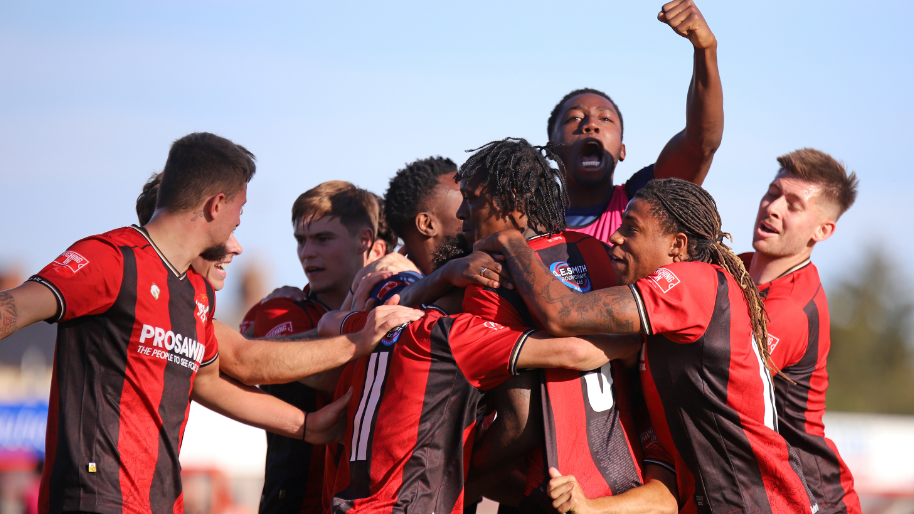
Kettering Town's players celebrate Nile Ranger's 92nd-minute winner against Cleethorpes Town in the second qualifying round of the FA Cup on 14 September
Ranger is dad to three-year-old Aziel, who he says has helped change his life for the better.
"He depends on me so I need to be on my A game."
Ranger knows he has been given more than enough "second chances" to salvage his career.
Does he feel he can return to the full-time game before his career ends?
"I could play in any team at my age if I'm fit - any team," he says. "It has to be a fit me, not a rusty me. But the rust is coming off.
"I still feel there is one big move left in me. I'm going to roll the dice one more time."
For now he is happy playing for Kettering - average gate 1,004.
It is his first club in two years and Ranger travels from his north London home to Northamptonshire at least twice a week for training and games.
"We're all on this journey in life together and we all make mistakes," says Kettering chairman George Akhtar.
"Hopefully we learn from them and grow as people."
As for Ranger, there is a feeling of regret at what could have been.
"It does hurt when I think about that [wasting his talent]," he says. "I could have done better."
A version of this interview was first published on BBC Sport in September.
- Published10 September 2024
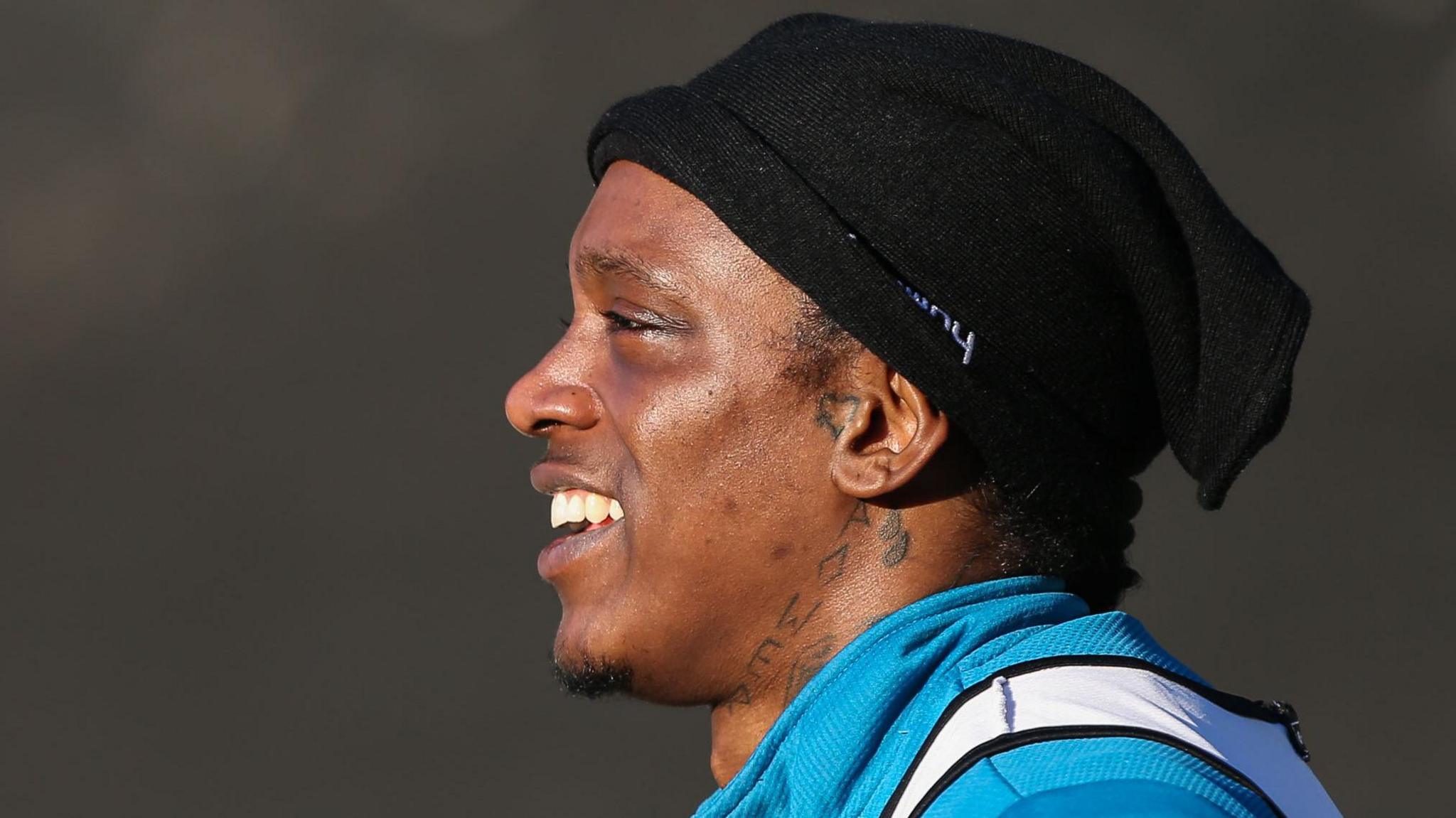
- Published29 September 2015
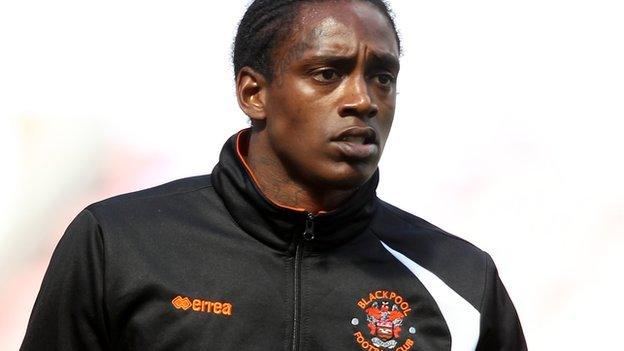
- Attribution
- Published23 May 2017
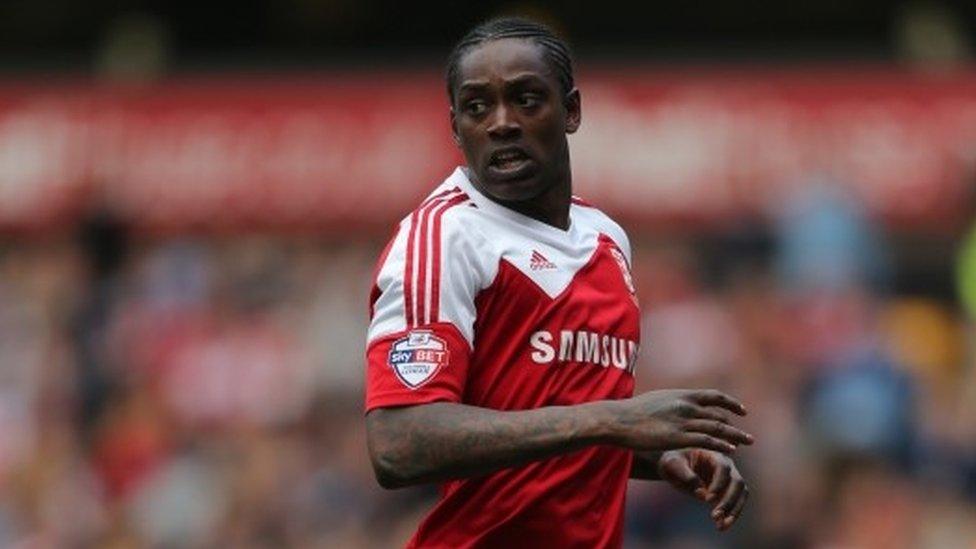
- Published16 August
